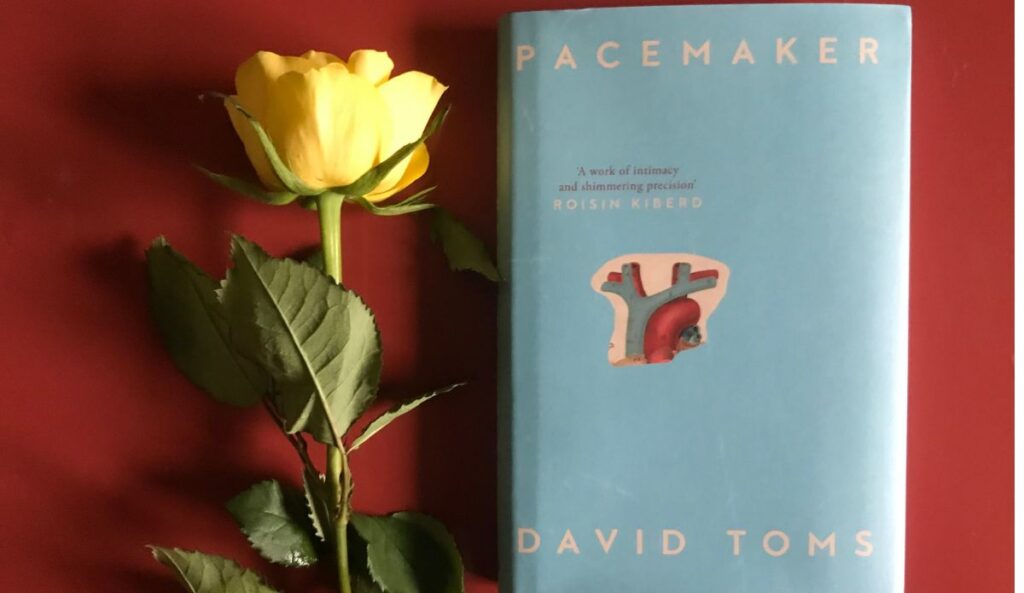
Pacemaker|David Toms|Banshee Press|9781838312657|€15
A deep, meditative memoir and a love-letter to Norway
A love letter to Norway, even with its harsh weather and daylight hours, as well as a love letter to his illness, we follow Toms’ journey through his thought process, as winding, thoughtful and meandering as one of his walks, paced to the beat of his heart.
by Fiona Murphy
It’s a strange start to life – to live with the knowledge that, had you been born just a few years earlier, you probably wouldn’t have lived.
Babies born with congenital heart defects—or as they were then known— ‘blue babies’, had slim to no chance of surviving. The life-saving surgery, atrial switch operations, finally came to Ireland in 1985.
David Toms, born with this congenital heart defect and author of ‘Pacemaker’, was born in 1988.
Unsettling
Toms settles us into this unsettling idea, and we feel the chill in the narrowness of his miss. As thoughtfully and gradually as a friend’s rambling train of thought at the end of a night out can become a deep conversation that you remember for the rest of your life, Toms’ absorbing self-portrait becomes an unforgettable account.
Conversational, bite-size paragraphs take you from page to page as he recounts living his life as a guinea pig: when no one like you has survived before, you live each day wondering what it will bring.
He grapples throughout his teenage and childhood years with his illness, trying to separate himself from it, from being a living, walking, breathing experiment. Adult congenital heart defect patients hadn’t existed until then – how would he develop? How long would he live?
Death is a constant
Questions about his health dog him and it feels as though Death is a constant, nearby companion, beside him since that first exit from the womb when his skin turned blue, marking him.
Toms feels him just a step behind him wherever he goes: through childhood on the football field, Death is his teammate; in college throughout his romances, Death is the third wheel. On his walks and wanders through beautiful fields and living breathing woods, Death keeps pace, whispering in his ear, asking where he would he take his last walk, if he had one chance?
A deep and meditative account, it’s not without its humour. Nor is it without a great joy, hope and appreciation of life.
Nature is alive and vibrant and we feel the cool crisp air as we ramble with him through a Norwegian wood, or hear our footsteps echo back to us on Cork’s Barracks Street, uncharacteristically calm and silent at the cusp of dawn.
Inner and outer landscape
Walking is one of the great loves of Toms’ life and he tramps his way through the trails and tracks of Ireland and then Norway, like mapping out the veins in his body, making his mark on the landscape, as if to shout ‘I was here!’ with each footstep.
And in the same way that he walks those trails over and over, his prose beautifully captures the trails and tracks that the mind always circles back to, the neurological pathways in his brain obsessed with trekking their way back to his condition, like his well-worn walking paths.
And as beautiful the landscape and as invigorating the walk, the thought always sidles its way back in – what if I can’t do this?
A startling insight into living with a chronic illness, Toms’ navigation of life with an unseen disability is galling, as he encounters shame, awkwardness and ignorance during everyday interactions. The label and definition itself, ‘disability’ feels like a coat that doesn’t quite fit him, showing us how the traditional label, attitudes and approach isn’t a one size fits all scenario.
And then, just as we find ourselves settling into his rhythm, his Norwegian wooded sanctuary – Covid hits.
Covid
It’s with an awful sense of PTSD that most readers will read these chapters. A sinking in the stomach, a hollowing in our chest, we watch the news talk of a virus, of clips of Italian people stuck in their homes and singing on their balconies.
Toms expertly and atmospherically brings us back to that time as we feel the sense of dread for him, reliving the fear of the unknown of the early Covid days. How afraid we were of contamination from everything a person with Covid touched, how their hospital room windows had to remain closed for fear of infection spreading.
A love letter to Norway, even with its harsh weather and daylight hours, as well as a love letter to his illness, we follow Toms’ journey through his thought process, as winding, thoughtful and meandering as one of his walks, paced to the beat of his heart.












